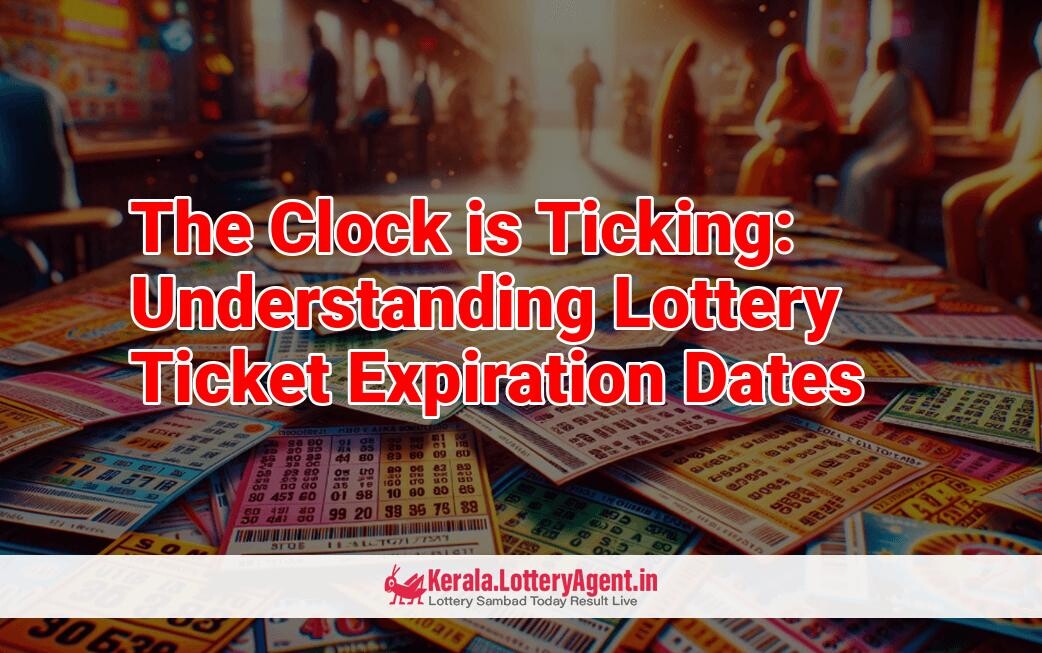
The euphoria of winning the lottery is indescribable, often leading to a delay in claiming the coveted prize. Winners may find themselves engulfed in the excitement, or meticulously crafting plans for their newfound wealth, sometimes preferring to wait until the funds are immediately needed before taking action. It is crucial for winners to understand that lottery tickets are not everlasting—they do, in fact, expire. With a typical expiration period ranging from 90 to 180 days post-purchase, this article serves as an essential guide to ensure your winnings are secured in a timely fashion.
Lottery tickets maintain validity up until their specified expiration date, commonly falling within the bracket of 90 to 180 days following purchase. The lifespan of a lottery ticket is largely dependent on the lottery game itself. While most lotteries offer a minimum three-month period extending from the drawing date to stake a claim on any prizes, deadliness can, on occasion, stretch up to a year. Some even permit players to claim their winnings three or more years after the draw. This makes it imperative to review the rules associated with each lottery game without undue delay.
The rationale behind ticket expiration is to maintain the financial integrity and transparency of lotteries. Organizers set expiries to prevent an accumulation of unclaimed tickets and to stimulate players to redeem their prizes expeditiously.
To identify your ticket’s expiration, consult the specific lottery’s claiming deadline. The following table outlines the expiration schedules for prominent global lottery games:
Lottery | Ticket Expiration
US Powerball | 90 days to 12 months (varies by state)
US MegaMillions | 90 days to 12 months (varies by state)
EuroMillions | 90 days to 12 months (varies by country)
EuroJackpot | 180 days
Italy Superenalotto | 90 days
Brazil Mega Sena | 90 days
Canada Lotto 6/49 | 12 months
Australia Oz Lotto | 6 years
Seasoned lottery players and novices alike should note that the expiration countdown generally commences from the drawing date. However, some lotteries might calculate from the date of ticket purchase, making it essential to verify with the ticket vendor.
Instant gratification seeker? Scratcher games are perfect for you. Yet bear in mind, these too come with expiration rules. Online scratch card players often see winnings credited instantly, but significant prizes may require a check-in with the lottery to comprehend claim deadlines. Store-bought scratchers should have expiration information on the back of the ticket and prizes must be claimed before this date elapses.
Missing out on a bajillion-dollar win due to an expired ticket is more common than one might expect. Take, for example, a jackpot of $87 million from EuroMillions in June 2012 that slipped through the fingers of an unknown winner—they failed to come forward before the expiration date. Even a Powerball winner, Lerynne West, almost missed her $343 million fortune due to a ticket left in another person’s car, thankfully reclaimed in time thanks to her sister.
Protect your winnings with these tips to prevent ticket expiration:
– Immediately verify the expiration date upon purchase, conjoining this with a call to your lottery if the date is not clearly printed on the ticket.
– Securely store your ticket. For online purchases, print a copy. Do not share your account information and keep your physical ticket in a damage-free zone.
– Save the draw date and follow up by checking results online post-draw.
– Confide in a trusted individual about your lottery participation—encourage them to nudge you toward redemption as the deadline nears.
– Set digital reminders on your mobile device to jog your memory as expiration approaches.
What of unclaimed prizes once tickets expire? The futures of these winnings are at the mercy of specific lottery jurisdictions. Certain states like Florida reallocate the entire sum for public initiatives, whereas others may funnel it into charitable causes or educational projects. In some instances, retailers divvy up the unacquired jackpot. The constant is, regrettably, post-expiration, players cannot lay claim to these funds.
In conclusion, lottery tickets do indeed expire, typically within a window of 90 days up to three years after purchase. The specifics surrounding ticket validity and expiration differ based on each lottery’s regulations, making it essential to consult either the vendor or the appropriate online resources. Should a ticket expire, it signifies a relinquished opportunity to collect the prize, with funds redirected to public uses.
As a reminder, lottery tickets have expiry dates, and punctuality in claiming rewards is tantamount—excuses are not entertained. The largest ever unclaimed lottery prize amounted to $1.337 billion from a MegaMillions drawing in Illinois, 2022. MegaMillions ticket expiration ranges from 90 days to one year, variable by location. Powerball ticket lifespan is similarly state-dependent. Redemption times for lottery winnings can differ. While smaller wins are paid out immediately at local vendors, more substantial prizes may involve a processing period of four to six weeks. Lastly, although you cannot reclaim a prize with an expired ticket, it might offer a second chance in a raffle draw.
Seek your fortune, but remember—time waits for no winner.











